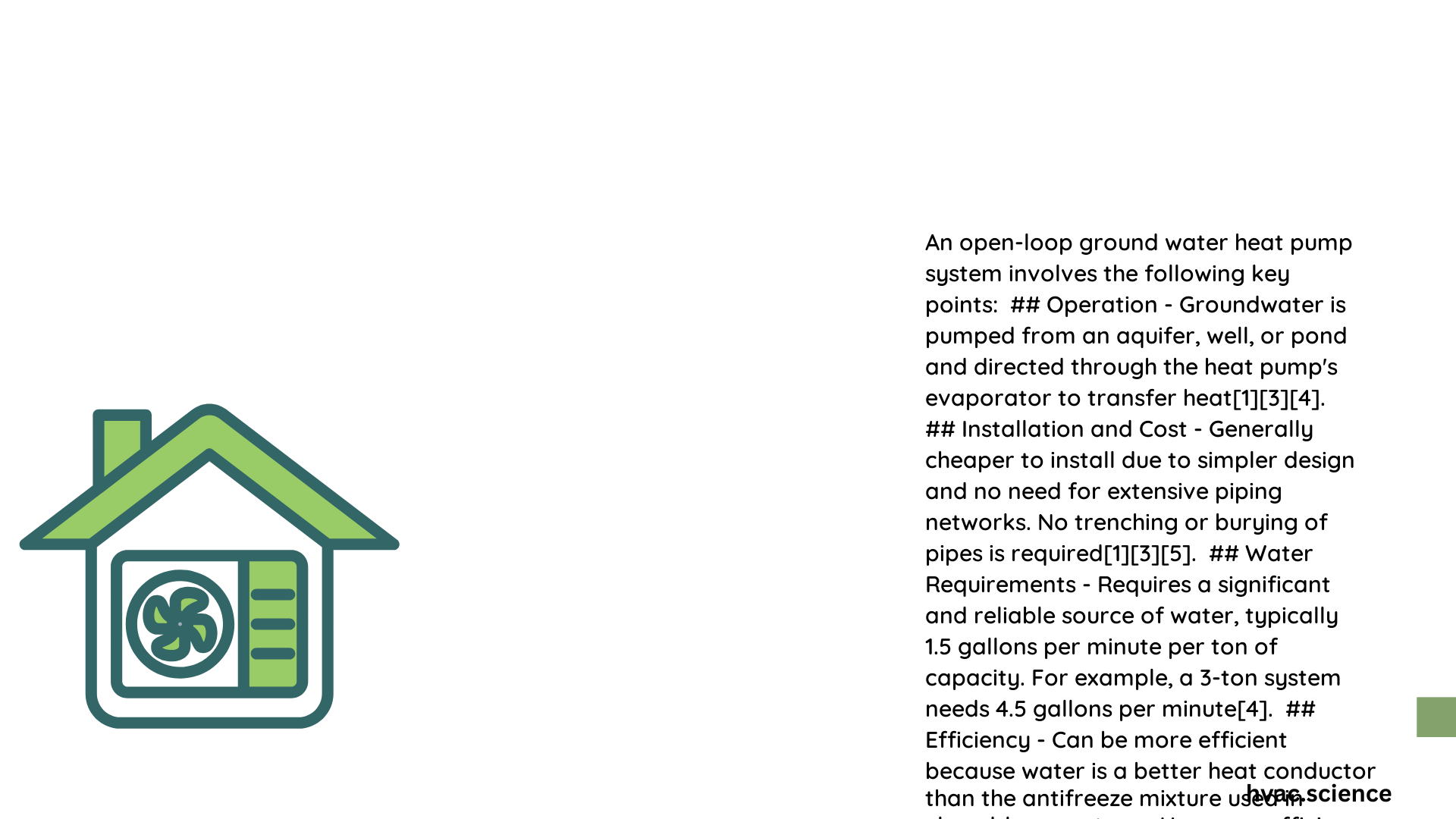Open loop ground water heat pumps represent an innovative geothermal heating technology that leverages groundwater’s consistent temperature to provide efficient heating and cooling. By directly extracting and circulating groundwater through a heat exchange system, these pumps offer superior energy performance compared to traditional heating methods, with potential cost savings and reduced environmental impact across residential and commercial applications.
What Makes Open Loop Ground Water Heat Pumps Unique?
Open loop ground water heat pumps utilize groundwater as a direct heat transfer medium, creating a highly efficient thermal exchange system. Unlike closed-loop systems, these pumps extract water directly from underground aquifers, providing several distinctive advantages.
Key Characteristics of Open Loop Systems
| Feature | Description | Performance Impact |
|---|---|---|
| Water Source | Direct groundwater extraction | High thermal conductivity |
| Temperature Stability | Consistent underground water temperatures | Reliable energy transfer |
| Installation Complexity | Requires well drilling | Location-dependent efficiency |
How Do Open Loop Ground Water Heat Pumps Work?

The operational mechanism of open loop ground water heat pumps involves several critical steps:
- Water Extraction
- Wells are drilled to access underground water sources
-
Groundwater is pumped directly into the heat pump system
-
Heat Exchange Process
- Water passes through a heat exchanger
- Thermal energy is transferred between water and refrigerant
-
Temperature modification occurs based on heating or cooling requirements
-
Water Discharge
- Treated water is typically reinjected into the aquifer
- Minimal environmental disruption
What Are the Efficiency Ratings?
Open loop ground water heat pumps demonstrate impressive efficiency metrics:
- Water-to-Air Systems:
- Energy Efficiency Ratio (EER): Approximately 21.1
-
Coefficient of Performance (COP): Around 4.1
-
Water-to-Water Systems:
- Energy Efficiency Ratio (EER): Typically 20.1
- Coefficient of Performance (COP): Approximately 3.5
What Factors Influence Performance?
Several critical factors impact open loop ground water heat pump performance:
- Groundwater temperature consistency
- Local geological conditions
- Water quality
- System design and component quality
- Depth and characteristics of water source
What Are the Installation Costs?
Installation expenses for open loop ground water heat pumps vary:
- Drilling Costs: $15 – $30 per foot
- Typical Well Depth: 100 – 400 feet
- Pump Installation: $10,000 – $20,000
- Permit and Regulatory Expenses: $1,000 – $5,000
- Total System Cost: $20,000 – $50,000
What Maintenance Practices Are Recommended?
Effective maintenance ensures optimal system performance:
- Regular filter cleaning (every 3-6 months)
- Annual water quality testing
- Periodic well and pump inspections
- Professional system evaluation
What Environmental Considerations Exist?
Open loop ground water heat pumps offer notable environmental benefits:
- Minimal water consumption
- Low carbon footprint
- Reduced reliance on fossil fuels
- Potential aquifer preservation through responsible management
Potential Limitations and Challenges
- Site-specific geological requirements
- Initial high installation costs
- Potential water quality restrictions
- Local regulatory compliance
Conclusion
Open loop ground water heat pumps represent a sophisticated, environmentally conscious heating and cooling solution. By understanding their mechanics, efficiency, and implementation considerations, homeowners and businesses can make informed decisions about adopting this innovative technology.
